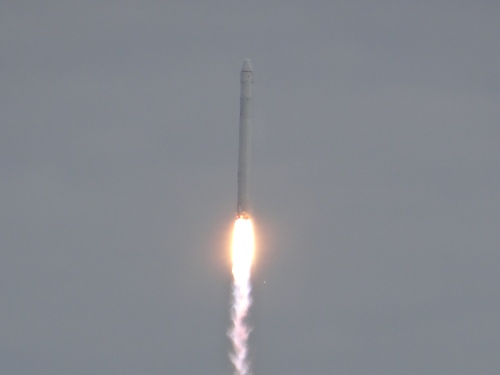No Quiet Riot : SpaceX Wants Texas to Feel the Noise
According to a report in the Valley Star, SpaceX counsel and Director of Governmental Affairs Caryn Schenewerk testified before a Texas House Committee yesterday that one of the issues the Hawthorne, Ca. based company is taking into account in selecting a commercial launch site, is possible complaints over the noise generated by a rocket launch.
Among the statements contained in the story:
“Part of what we do is, we make a lot of noise and we are going to get a lot of attention. There is nothing more thrilling … than seeing a launch. It is a very powerful and inspiring experience,” Schenewerk said.
and ““We want to be somewhere where our activity is valued.”
While the testimony is referring specifically to legislation being put before the committee which would alter Texas law to prevent a an individual from filing a lawsuit or injunction over a launch based on the basis of a noise complaint, it does raise the subject of how the development of a commercial spaceport hosting large launch vehicles might change the viewing experience for the general public. Shuttle launches were spectacular events, made so in part because of the size of the orbiter stack and the solid rocket boosters which emitted a tremendous amount of light and sound. The three SSME’s, burning liquid hydrogen and liquid oxygen were barely visible by contrast. Nevertheless, as many can attest, attending a launch was also a frustrating experience in which you were either under strict NASA rules with better visibility, or in the general public further away which had a distinct tailgate party atmosphere, but somewhat poorer visibility. As a much smaller launch vehicle, a Falcon 9 lifting off is not quite as spectacular, but that will certainly change when the three core Falcon Heavy leaves the pad with 27 Merlin 1D Engines each roaring at more than 50% greater thrust than the now retired Merlin 1C.
Wherever it chooses to locate a commercial spaceport, even indeed it even does at all, it will be interesting to see how the company chooses to present the launch experience to the general public, and if any accommodations are made to enhance the experience. Although as a private corporation, SpaceX would certainly be under no obligation to do so, if the tone of yesterdays’ testimony is any indication of the eventual outcome, it could prove interesting. This is one more, albeit fairly minor, aspect of how the relationship of spaceflight and the general public stands to change in the emerging world of NewSpace.


